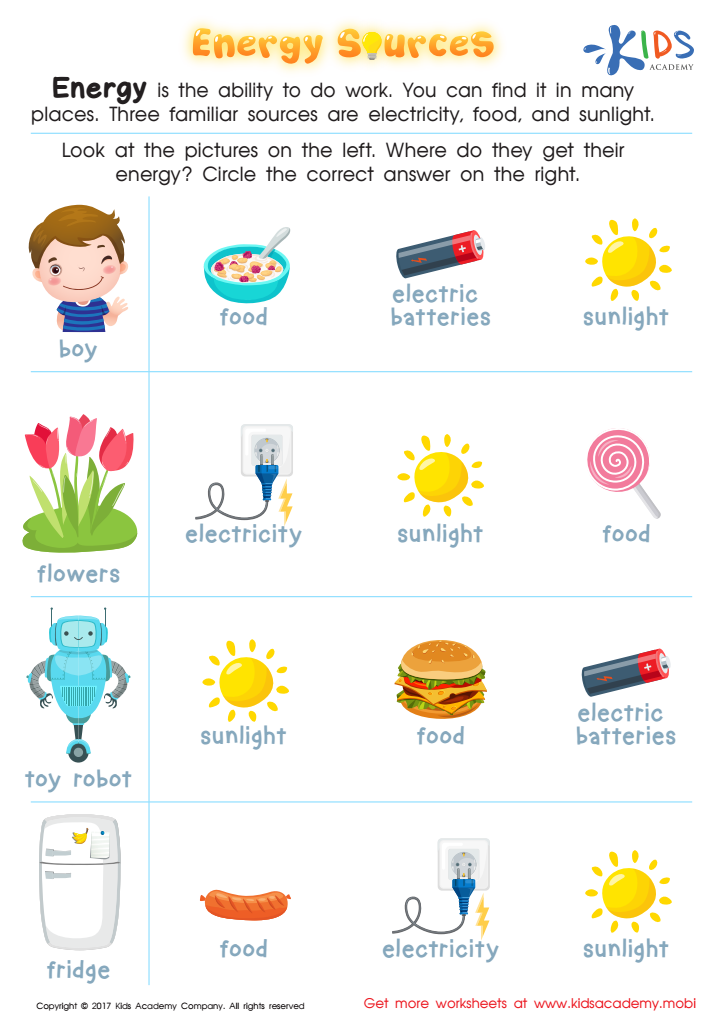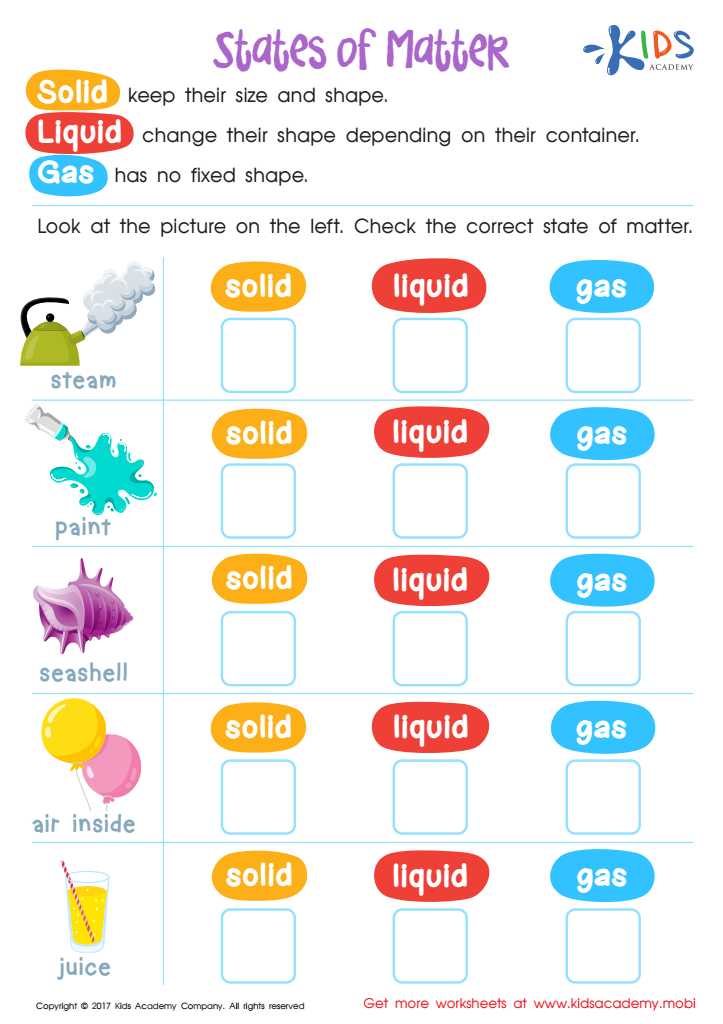Normal Physical Science Worksheets for Ages 3-9
3 filtered results
-
From - To
Discover a delightful array of Normal Physical Science Worksheets designed for children aged 3-9 on Kids Academy. Our engaging, age-appropriate activities help young learners explore the fascinating world of physical science in a fun, interactive way. These worksheets cover essentials such as solids, liquids, gases, basic physics concepts, and more, fostering curiosity and critical thinking. Perfect for parents, teachers, and homeschoolers, our resources align with early learning standards and are crafted to build foundational science skills. Kickstart your child's scientific journey today with our captivating, educational materials!


Energy Sources Printable


Physical Science: States of Matter Worksheet


Sink or Float Printable
Normal Physical Science for ages 3-9 is crucial because it lays the foundation for critical thinking and curiosity about the world around them. At these formative ages, children's brains are highly receptive to new information and experiences. Engaging with physical science concepts helps develop essential problem-solving skills, encouraging kids to ask questions, hypothesize, and explore.
Understanding basic principles of science, like gravity, motion, and simple chemistry, empowers young learners to make sense of everyday phenomena. For instance, watching a plant grow teaches biological processes, while playing with magnets introduces them to physics.
Moreover, early exposure to science fosters a positive attitude toward learning and school, setting the stage for future academic success. Math skills, reading comprehension, and attention spans also benefit from structured scientific learning.
Classrooms and homes that incorporate physical science activities provide interactive, hands-on opportunities that are crucial for active learning. Simple experiments that are safe and engaging can spark a lifelong love for discovery.
Additionally, normalizing physical science topics at an early age helps to bridge gender gaps and encourage diversity in STEM fields. Girls and boys equally exposed to science concepts early are more likely to pursue related subjects later.
Parents and teachers fostering an environment rich in physical science are investing in a child's cognitive development, critical thinking skills, and future potential.

 Assign to the classroom
Assign to the classroom












